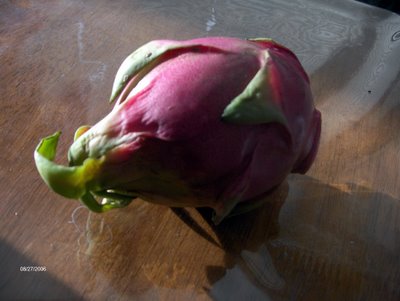May 28, 1989
Write Till You Drop
By ANNIE DILLARD
People love pretty much the same things best. A writer looking for subjects inquires not after what he loves best, but after what he alone loves at all. Strange seizures beset us. Frank Conroy loves his yo-yo tricks, Emily Dickinson her slant of light; Richard Selzer loves the glistening peritoneum, Faulkner the muddy bottom of a little girl's drawers visible when she's up a pear tree. ''Each student of the ferns,'' I once read, ''will have his own list of plants that for some reason or another stir his emotions.''
Why do you never find anything written about that idiosyncratic thought you advert to, about your fascination with something no one else understands? Because it is up to you. There is something you find interesting, for a reason hard to explain. It is hard to explain because you have never read it on any page; there you begin. You were made and set here to give voice to this, your own astonishment.
Write as if you were dying. At the same time, assume you write for an audience consisting solely of terminal patients. That is, after all, the case. What would you begin writing if you knew you would die soon? What could you say to a dying person that would not enrage by its triviality?
Write about winter in the summer. Describe Norway as Ibsen did, from a desk in Italy; describe Dublin as James Joyce did, from a desk in Paris. Willa Cather wrote her prairie novels in New York City; Mark Twain wrote ''Huckleberry Finn'' in Hartford. Recently scholars learned that Walt Whitman rarely left his room.
The writer studies literature, not the world. She lives in the world; she cannot miss it. If she has ever bought a hamburger, or taken a commercial airplane flight, she spares her readers a report of her experience. She is careful of what she reads, for that is what she will write. She is careful of what she learns, because that is what she will know.
The writer knows her field - what has been done, what could be done, the limits - the way a tennis player knows the court. And like that expert, she, too, plays the edges. That is where the exhilaration is. She hits up the line. In writing, she can push the edges. Beyond this limit, here, the reader must recoil. Reason balks, poetry snaps; some madness enters, or strain. Now gingerly, can she enlarge it, can she nudge the bounds? And enclose what wild power?
A well-known writer got collared by a university student who asked, ''Do you think I could be a writer?''
''Well,'' the writer said, ''I don't know. . . . Do you like sentences?''
The writer could see the student's amazement. Sentences? Do I like sentences? I am 20 years old and do I like sentences? If he had liked sentences, of course, he could begin, like a joyful painter I knew. I asked him how he came to be a painter. He said, ''I liked the smell of the paint.''
Hemingway studied, as models, the novels of Knut Hamsun and Ivan Turgenev. Isaac Bashevis Singer, as it happened, also chose Hamsun and Turgenev as models. Ralph Ellison studied Hemingway and Gertrude Stein. Thoreau loved Homer; Eudora Welty loved Chekhov. Faulkner described his debt to Sherwood Anderson and Joyce; E. M. Forster, his debt to Jane Austen and Proust. By contrast, if you ask a 21-year-old poet whose poetry he likes, he might say, unblushing, ''Nobody's.'' He has not yet understood that poets like poetry, and novelists like novels; he himself likes only the role, the thought of himself in a hat. Rembrandt and Shakespeare, Bohr and Gauguin, possessed powerful hearts, not powerful wills. They loved the range of materials they used. The work's possibilities excited them; the field's complexities fired their imaginations. The caring suggested the tasks; the tasks suggested the schedules. They learned their fields and then loved them. They worked, respectfully, out of their love and knowledge, and they produced complex bodies of work that endure. Then, and only then, the world harassed them with some sort of wretched hat, which, if they were still living, they knocked away as well as they could, to keep at their tasks.
It makes more sense to write one big book - a novel or nonfiction narrative - than to write many stories or essays. Into a long, ambitious project you can fit or pour all you possess and learn. A project that takes five years will accumulate those years' inventions and richnesses. Much of those years' reading will feed the work. Further, writing sentences is difficult whatever their subject. It is no less difficult to write sentences in a recipe than sentences in ''Moby-Dick.'' So you might as well write ''Moby-Dick.'' Similarly, since every original work requires a unique form, it is more prudent to struggle with the outcome of only one form - that of a long work - than to struggle with the many forms of a collection.
Every book has an intrinsic impossibility, which its writer discovers as soon as his first excitement dwindles. The problem is structural; it is insoluble; it is why no one can ever write this book. Complex stories, essays and poems have this problem, too - the prohibitive structural defect the writer wishes he had never noticed. He writes it in spite of that. He finds ways to minimize the difficulty; he strengthens other virtues; he cantilevers the whole narrative out into thin air and it holds. Why are we reading, if not in hope of beauty laid bare, life heightened and its deepest mystery probed? Can the writer isolate and vivify all in experience that most deeply engages our intellects and our hearts? Can the writer renew our hopes for literary forms? Why are we reading, if not in hope that the writer will magnify and dramatize our days, will illuminate and inspire us with wisdom, courage and the hope of meaningfulness, and press upon our minds the deepest mysteries, so we may feel again their majesty and power? What do we ever know that is higher than that power which, from time to time, seizes our lives, and which reveals us startlingly to ourselves as creatures set down here bewildered? Why does death so catch us by surprise, and why love? We still and always want waking. If we are reading for these things, why would anyone read books with advertising slogans and brand names in them? Why would anyone write such books? We should mass half-dressed in long lines like tribesmen and shake gourds at each other, to wake up; instead we watch television and miss the show.
No manipulation is possible in a work of art, but every miracle is. Those artists who dabble in eternity, or who aim never to manipulate but only to lay out hard truths, grow accustomed to miracles. Their sureness is hard won. ''Given a large canvas,'' said Veronese, ''I enriched it as I saw fit.''
The sensation of writing a book is the sensation of spinning, blinded by love and daring. It is the sensation of a stunt pilot's turning barrel rolls, or an inchworm's blind rearing from a stem in search of a route. At its worst, it feels like alligator wrestling, at the level of the sentence.
At its best, the sensation of writing is that of any unmerited grace. It is handed to you, but only if you look for it. You search, you break your fists, your back, your brain, and then - and only then -it is handed to you. From the corner of your eye you see motion. Something is moving through the air and headed your way. It is a parcel bound in ribbons and bows; it has two white wings. It flies directly at you; you can read your name on it. If it were a baseball, you would hit it out of the park. It is that one pitch in a thousand you see in slow motion; its wings beat slowly as a hawk's.
One line of a poem, the poet said - only one line, but thank God for that one line - drops from the ceiling. Thornton Wilder cited this unnamed writer of sonnets: one line of a sonnet falls from the ceiling, and you tap in the others around it with a jeweler's hammer. Nobody whispers it in your ear. It is like something you memorized once and forgot. Now it comes back and rips away your breath. You find and finger a phrase at a time; you lay it down as if with tongs, restraining your strength, and wait suspended and fierce until the next one finds you: yes, this; and yes, praise be, then this.
Einstein likened the generation of a new idea to a chicken's laying an egg: ''Kieks - auf einmal ist es da.'' Cheep - and all at once there it is. Of course, Einstein was not above playing to the crowd.
Push it. Examine all things intensely and relentlessly. Probe and search each object in a piece of art; do not leave it, do not course over it, as if it were understood, but instead follow it down until you see it in the mystery of its own specificity and strength. Giacometti's drawings and paintings show his bewilderment and persistence. If he had not acknowledged his bewilderment, he would not have persisted. A master of drawing, Rico Lebrun, discovered that ''the draftsman must aggress; only by persistent assault will the live image capitulate and give up its secret to an unrelenting line.'' Who but an artist fierce to know - not fierce to seem to know - would suppose that a live image possessed a secret? The artist is willing to give all his or her strength and life to probing with blunt instruments those same secrets no one can describe any way but with the instruments' faint tracks.
Admire the world for never ending on you as you would admire an opponent, without taking your eyes off him, or walking away.
One of the few things I know about writing is this: spend it all, shoot it, play it, lose it, all, right away, every time. Do not hoard what seems good for a later place in the book, or for another book; give it, give it all, give it now. The impulse to save something good for a better place later is the signal to spend it now. Something more will arise for later, something better. These things fill from behind, from beneath, like well water. Similarly, the impulse to keep to yourself what you have learned is not only shameful, it is destructive. Anything you do not give freely and abundantly becomes lost to you. You open your safe and find ashes.
After Michelangelo died, someone found in his studio a piece of paper on which he had written a note to his apprentice, in the handwriting of his old age: ''Draw, Antonio, draw, Antonio, draw and do not waste time.''
Annie Dillard's most recent book is ''An American Childhood.'' Her narrative, ''Pilgrim at Tinker Creek,'' won a Pulitzer Prize in 1975.
http://www.nytimes.com/books/99/03/28/specials/dillard-drop.html



 Dragonfruit is somewhat similar to kiwi--a little soft, a little sweet
Dragonfruit is somewhat similar to kiwi--a little soft, a little sweet



